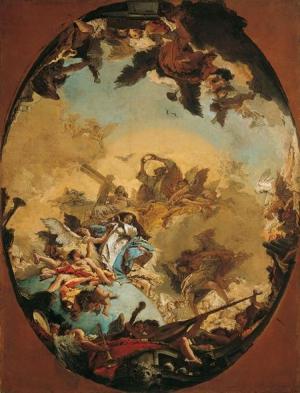Life and Times of Washington, Volume II
Nonfiction, Religion & Spirituality, New Age, History, Fiction & Literature| Author: | John Frederick Schroeder | ISBN: | 9781465553782 |
| Publisher: | Library of Alexandria | Publication: | March 8, 2015 |
| Imprint: | Language: | English |
| Author: | John Frederick Schroeder |
| ISBN: | 9781465553782 |
| Publisher: | Library of Alexandria |
| Publication: | March 8, 2015 |
| Imprint: | |
| Language: | English |
Among the many perplexing subjects which claimed the attention of Washington during the winter (1776-1777), while he was holding his headquarters among the hills at Morristown, none gave him more annoyance than that of the treatment of American prisoners in the hands of the enemy. Among the civilized nations of modern times prisoners of war are treated with humanity and principles are established on which they are exchanged. The British officers, however, considered the Americans as rebels deserving condign punishment and not entitled to the sympathetic treatment commonly shown to the captive soldiers of independent nations. They seem to have thought that the Americans would never be able, or would never dare, to retaliate. Hence their prisoners were most infamously treated. Against this the Americans remonstrated, and, on finding their remonstrances disregarded, they adopted a system of retaliation which occasioned much unmerited suffering to individuals. Col. Ethan Allen, who had been defeated and made prisoner in a bold but rash attempt against Montreal, was put in irons and sent to England as a traitor. In retaliation, General Prescott, who had been taken at the mouth of the Sorel, was put in close confinement for the avowed purpose of subjecting him to the same fate which Colonel Allen should suffer. Both officers and privates, prisoners to the Americans, were more rigorously confined than they would otherwise have been, and, that they might not impute this to wanton harshness and cruelty, they were distinctly told that their own superiors only were to blame for any severe treatment they might experience. The capture of General Lee became the occasion of embittering the complaints on this subject, and of aggravating the sufferings of the prisoners of war. Before that event something like a cartel for the exchange of prisoners had been established between Generals Howe and Washington, but the captivity of General Lee interrupted that arrangement. The general, as we have seen, had been an officer in the British army, but having been disgusted had resigned his commission, and, at the beginning of the troubles, had offered his services to Congress, which were readily accepted. General Howe affected to consider him as a deserter, and ordered him into close confinement.
Among the many perplexing subjects which claimed the attention of Washington during the winter (1776-1777), while he was holding his headquarters among the hills at Morristown, none gave him more annoyance than that of the treatment of American prisoners in the hands of the enemy. Among the civilized nations of modern times prisoners of war are treated with humanity and principles are established on which they are exchanged. The British officers, however, considered the Americans as rebels deserving condign punishment and not entitled to the sympathetic treatment commonly shown to the captive soldiers of independent nations. They seem to have thought that the Americans would never be able, or would never dare, to retaliate. Hence their prisoners were most infamously treated. Against this the Americans remonstrated, and, on finding their remonstrances disregarded, they adopted a system of retaliation which occasioned much unmerited suffering to individuals. Col. Ethan Allen, who had been defeated and made prisoner in a bold but rash attempt against Montreal, was put in irons and sent to England as a traitor. In retaliation, General Prescott, who had been taken at the mouth of the Sorel, was put in close confinement for the avowed purpose of subjecting him to the same fate which Colonel Allen should suffer. Both officers and privates, prisoners to the Americans, were more rigorously confined than they would otherwise have been, and, that they might not impute this to wanton harshness and cruelty, they were distinctly told that their own superiors only were to blame for any severe treatment they might experience. The capture of General Lee became the occasion of embittering the complaints on this subject, and of aggravating the sufferings of the prisoners of war. Before that event something like a cartel for the exchange of prisoners had been established between Generals Howe and Washington, but the captivity of General Lee interrupted that arrangement. The general, as we have seen, had been an officer in the British army, but having been disgusted had resigned his commission, and, at the beginning of the troubles, had offered his services to Congress, which were readily accepted. General Howe affected to consider him as a deserter, and ordered him into close confinement.















